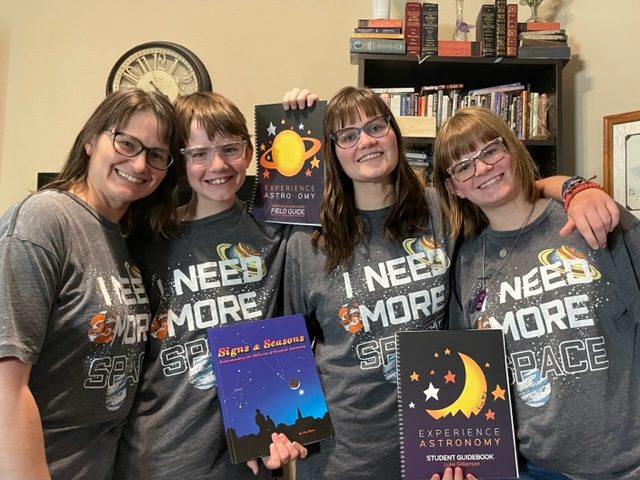Believe it or not, not everyone loves science! Gasp. Did we just say that? It’s true! Perhaps you’ve already experienced this with one of your homeschooled kids. So how can you foster a love for science in your homeschooled child who wants nothing to do with it? We have a few tips and tricks, and some of them might surprise you.

It’s Okay to Dislike Science
We said something shocking again! As a homeschool parent, you don’t need to be surprised or disappointed if your child just doesn’t like science. On the other hand, we believe that there is always room to grow and learn to love any subject, including science.
If you have a student who just doesn’t love science, don’t shame them for that. If anything, remind them that it’s okay to have a favorite or least favorite subject. Everyone does! Talk to them about the aspects of science that they don’t care for. For some, it might be as simple as they just don’t like reading a big textbook. (We wouldn’t blame them!) Once you know why your homeschooled child doesn’t like science, you can make some adjustments to their coursework that will foster a love for science.
STEM versus Creativity

Just like visual learners differ greatly from written learners, so do those who prefer creative subjects over STEM subjects. Kids who don’t love science probably love creative and artistic learning subjects like art, writing, or even history. Case in point: my brother despised science but couldn’t get enough of history, whereas I ate up every science topic but could never get passionate about history.
If this describes your homeschooled child, you’ll want to make a few adjustments to foster a love for science in his or her learning. For starters, check out Engaging Artsy Kids in Science: Fusing Creativity and STEM Education. And, for high schoolers, we’ve written this post to combat the great science and art divide: High School Science Projects That Combine Art and Science: Engaging Artsy Kids.
With so many resources available online or in book format these days, merging STEM learning with art/visual learning is easier than ever!
Break Down Science Concepts Into Simple Terms
Does your child know that when they whip up pancakes for breakfast, they’re actually doing chemistry? Or when they catch that nasty cold, they’re living and breathing (literally) biology? Most of us take our daily activities and lifestyle for granted, without realizing that without key scientific concepts, life on Earth wouldn’t exist. We use science every second of every day.
Remind your child of this as they go about their daily life, especially if they say that they are “bored” by science. Step back and really take the time to observe and appreciate the parts of daily life that your child wouldn’t normally think twice about. This could look like laying on the deck after dark to watch the stars or baking a cake for dessert. The simpler the terms, the easier your child will find it to understand and love science of all kinds.
Foster a Love for Science by Making Science Fun

This seems like a no-brainer, but in the busyness and chaos of life (and homeschooling!), it can be easy for science to become a monotonous routine. If you’re struggling to fit in opportunities to make science more fun, here are a few easy ways to do so:
- Join a local homeschool science co-op.
- Integrate science into daily tasks (cooking, gardening, even housecleaning!).
- Replace your daily assignment with a science-focused field trip.
- Visit your local science museum on the weekend or after-school hours.
- Sign your child up for a summer science camp.
- Spend as much time outside as possible – science in real life!
Choose a High-Quality Science Curriculum
If you’re already a homeschooling parent, you’ve probably felt the struggle of figuring out what curriculum to use. After all, there are SO many options – where to even begin?
In one of our favorite blog posts, The Best Christian-Based Homeschool Science Curriculum, we break down some of our top-reviewed choices for homeschool science curriculum. In another post, Choosing an Elementary Science Curriculum, we discuss important features that will make up a solid science curriculum, including:
- Flexibility
- Incorporation of memory work
- Use of living books
- Engaging materials
- And more!
Choosing a high-quality science curriculum can certainly seem daunting, but it’s an important step in helping to foster a love for science in your homeschooled child.
Speaking of Science Curriculum…

Did you know that Journey Homeschool Academy is on a mission to help you foster a love for science in your homeschooled child? Our online science courses have been carefully crafted for a wide variety of grade levels, from elementary astronomy to high school biology.
We believe that science can totally be educational and hands-on, creating the perfect balance for any type of learner in your home!

